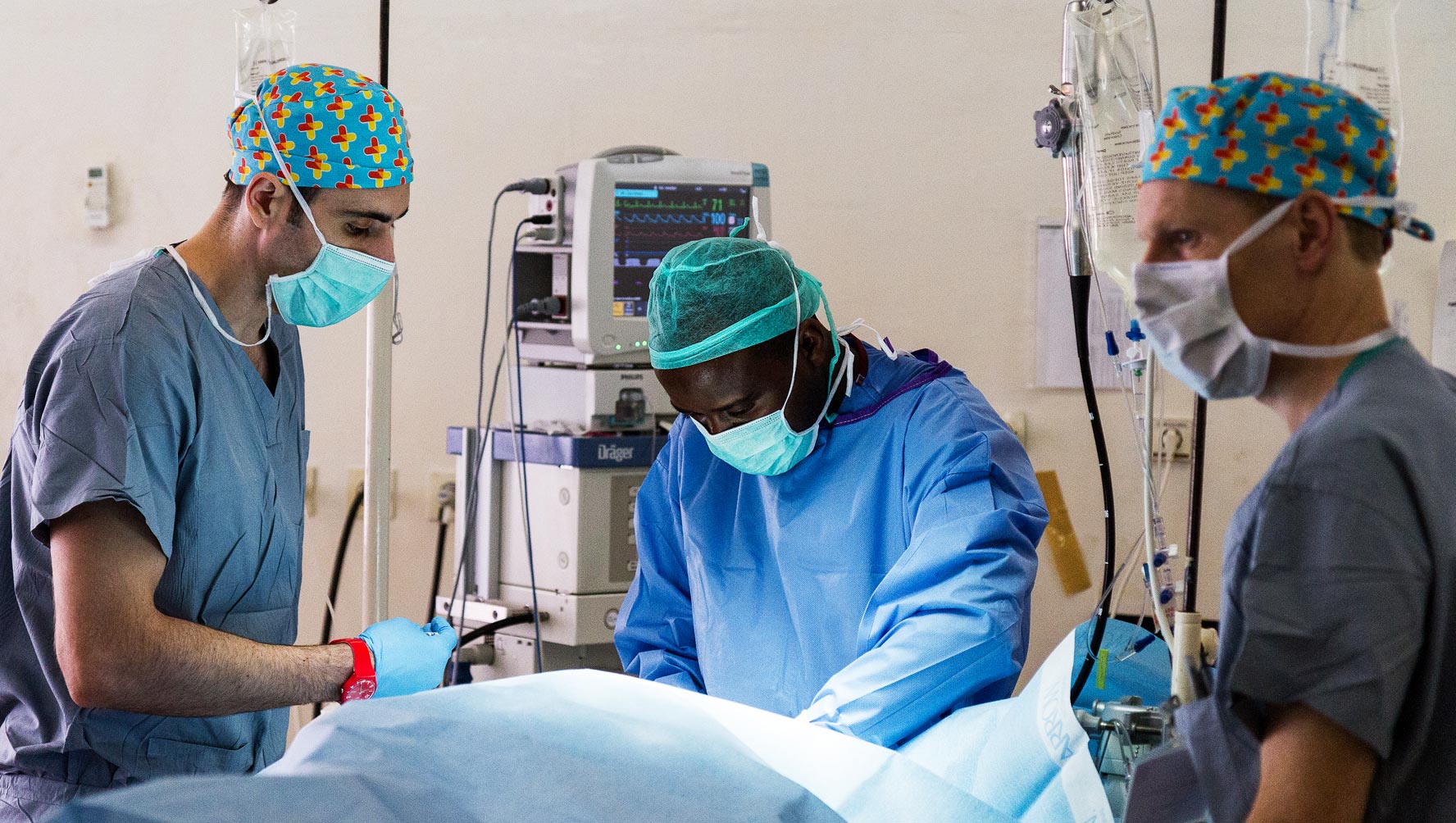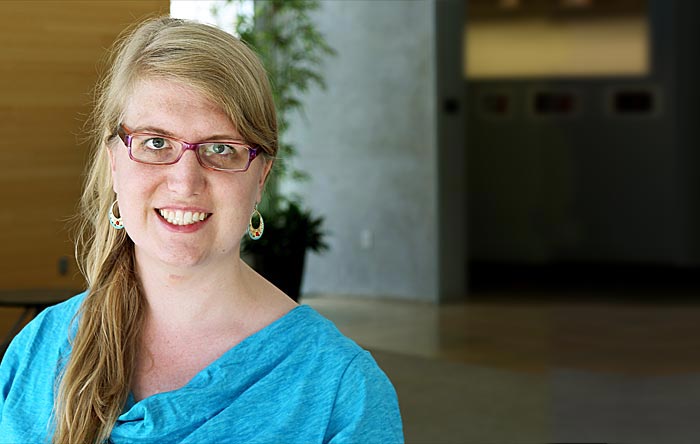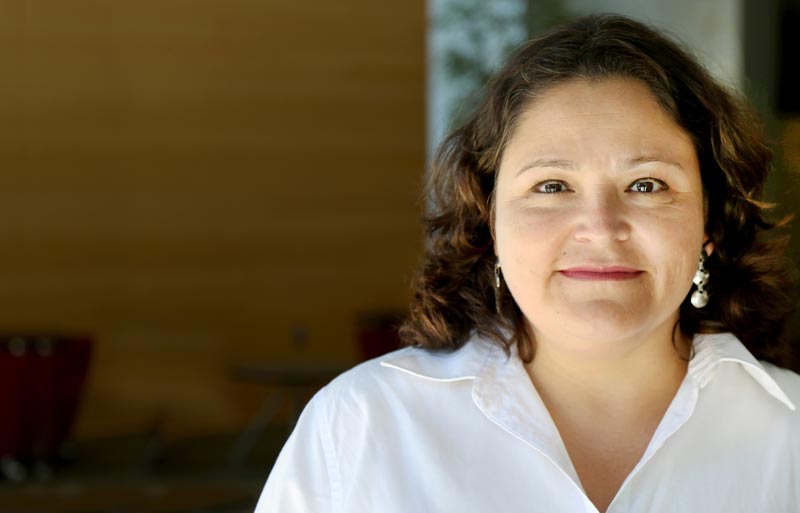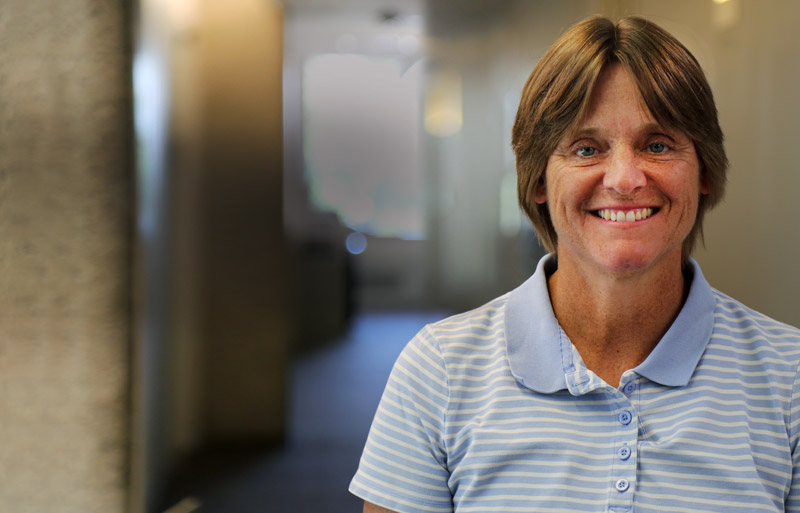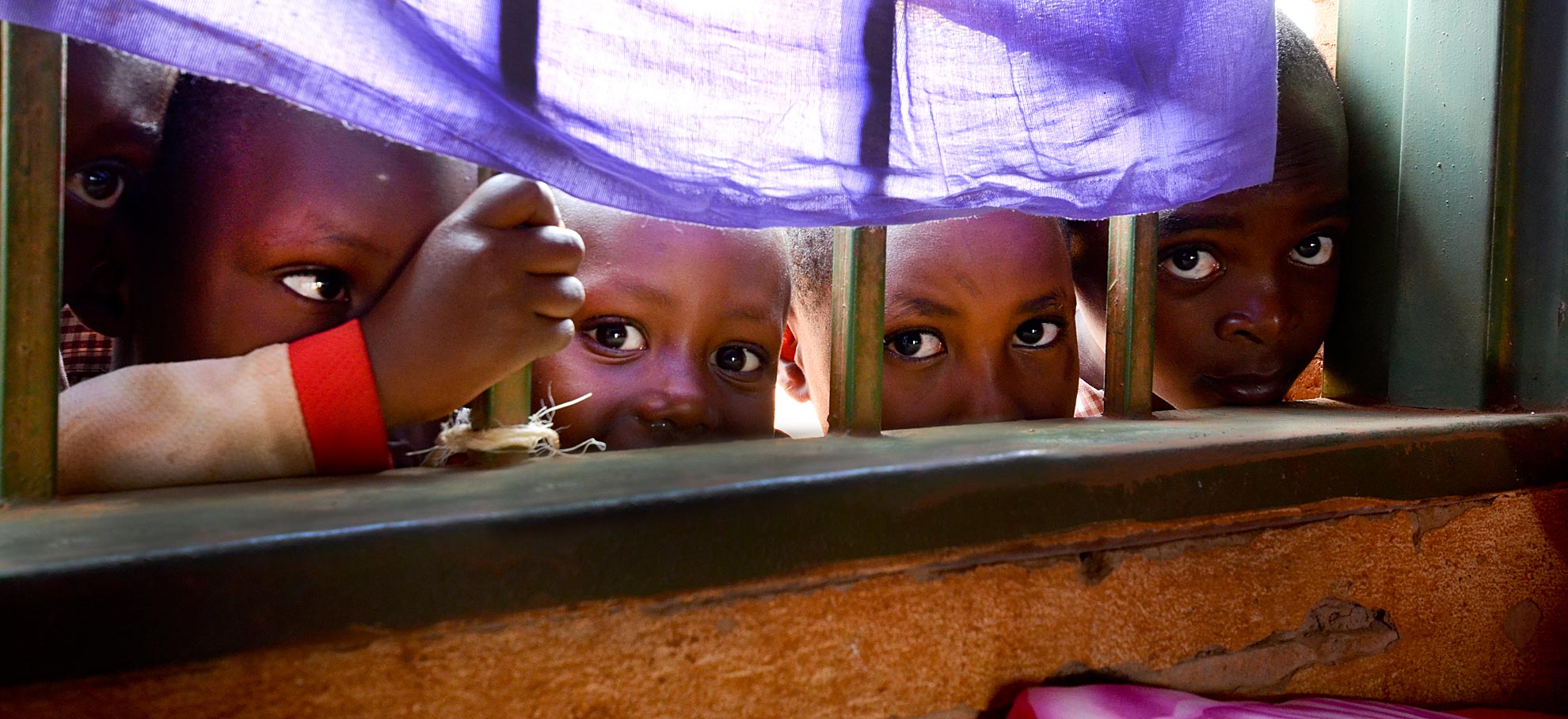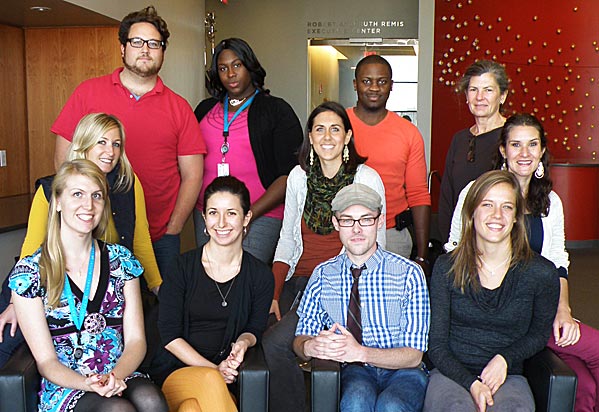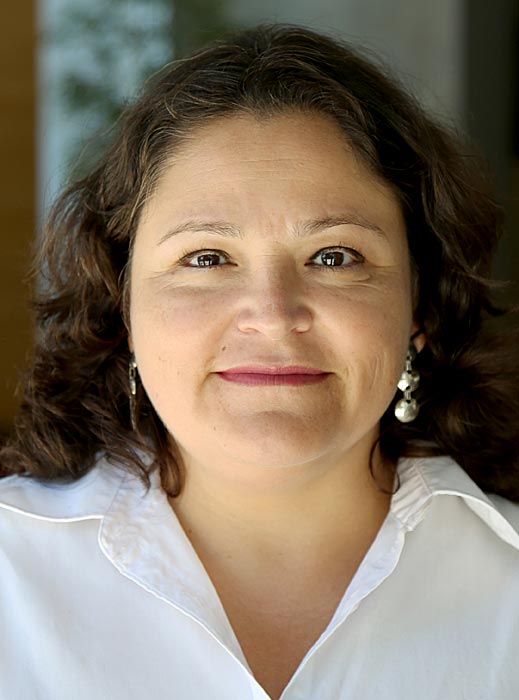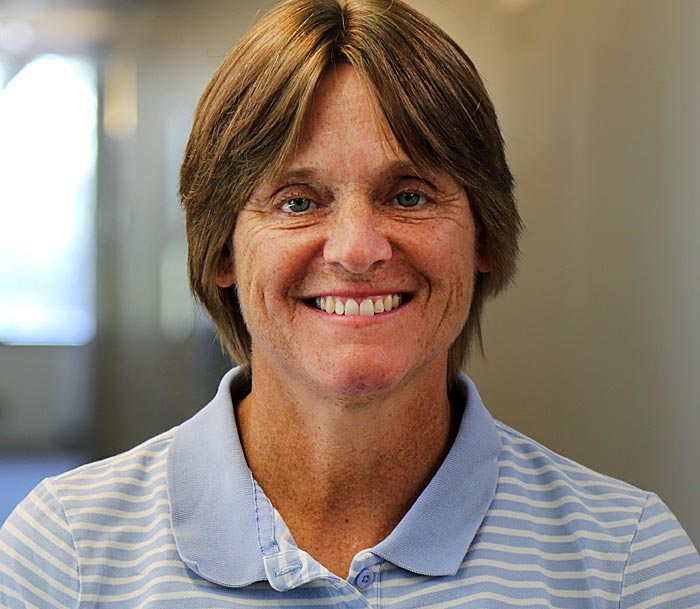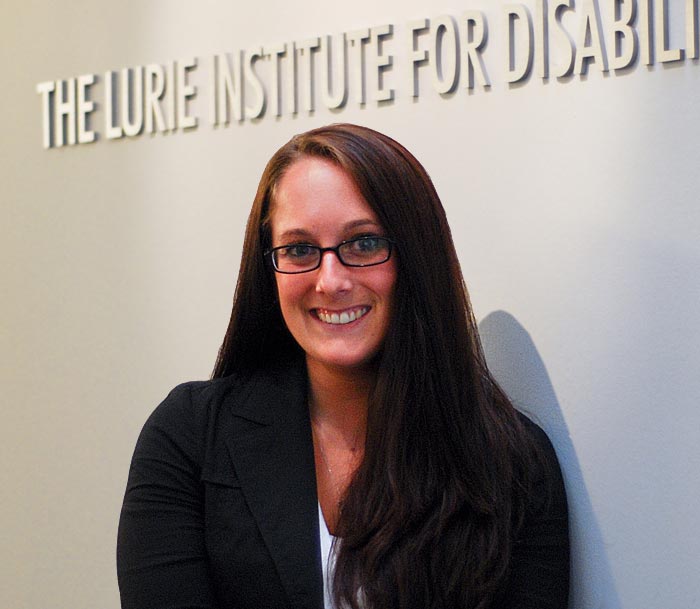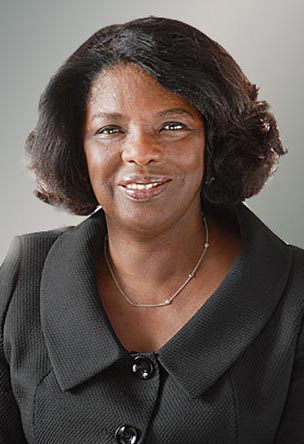At the heart of the matter
A Heller professor and student partner with Rwandan government and Boston-based nonprofit to provide cardiac care
Runaway train
To the average American child, strep throat is a common inconvenience. A throat swab, some chicken soup, a round of penicillin and then back to school—there's little cause for concern.
And yet in the impoverished communities of many developing nations, strep throat has a far more sinister story. Without antibiotics, strep throat can turn into a runaway train, steadily worsening until it morphs into rheumatic heart disease, a chronic inflammatory illness. Children that develop rheumatic heart disease become weak, short of breath, have chronic chest pain and fatigue. Eventually they lack the strength to walk even short distances on flat terrain, and their hearts are so damaged by the disease that a heart valve replacement is their only recourse.
To say that treatment options for rheumatic heart disease in Rwanda are limited is an understatement. These young people require open-heart surgery in a country that doesn't have a single cardiac surgeon, and just four cardiologists. The wealthy few might pay out-of-pocket for a surgery in South Africa or India, while the rest are placed on a waiting list for a pro bono surgery from an international humanitarian organization.
Team Heart: A group of surgeons with their finger in the dam
“It's one thing to look at the numbers, but it's another thing to look at their faces ”
One such humanitarian organization is Team Heart, a group of cardiologists and cardiac surgeons from New England based Hospitals. Since 2008, they have performed 16 valve replacement surgeries every year on rheumatic heart disease patients in Rwanda. They have saved over 100 lives, but recognize that these surgeries serve an acute need at the last possible moment of intervention—and it's an expensive way to treat people.
"From the very start we felt a strong moral obligation to do these surgeries," said Ceeya Patton-Bolman, co-founder of Team Heart, "but we also realized that what we were doing was just a Band-Aid. With some money, you could identify and treat most rheumatic heart fever patients long before surgery is required. And for those who do need cardiac care, Rwanda sorely needs an improved facility and trained workers in-country."
Noella Bigirimana: Team Heart intern and Heller MS student
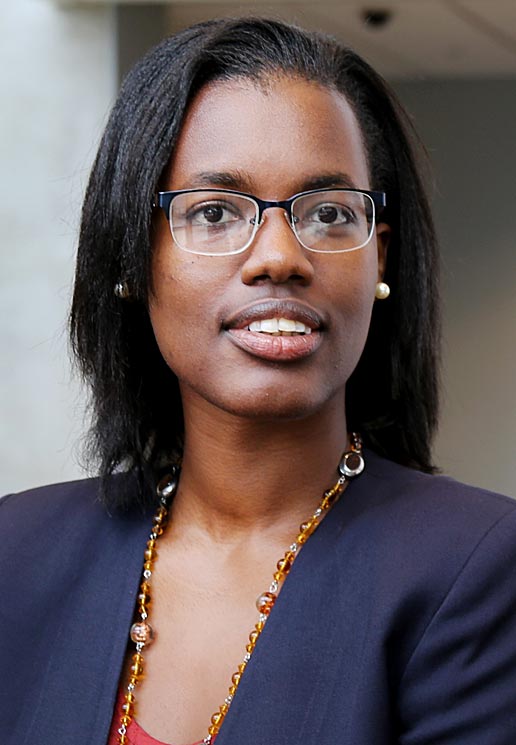
Noella Bigirimana, MS'15
Heller student Noella Bigirimana, MS'15, grew up in the Rwandan health system. With a doctor for a father and a nurse for a mother, she spent her childhood in and around the hospitals of Kigali. After receiving her undergraduate degree at Cornell, she moved to Boston and pursued an internship at Team Heart, where she eventually became their project manager.
In 2013, Bigirimana went back to Rwanda for a two-week visit—but this time, on a Team Heart surgical trip. "The whole first week was patient screening for patients at the top of the waitlist. The waiting room was packed—completely packed, for 12 straight hours every day, no matter how many patients we saw. It was just so full," she said, "and these were the people who were lucky enough to get diagnosed, lucky enough to get placed on the waiting list, and lucky enough to physically get to the health center. Some of them slept in the hospital overnight, just waiting and hoping."
"It's one thing to look at the numbers, but it's another thing to look at their faces," she continues. "I realized that, despite tremendous progress, the Rwandan system isn't ready for these patients. Something has to be done." When she returned to Boston after that trip, Bigirimana applied to the MS program in International Health Policy and Management at Heller.
The 1994 genocide in Rwanda devastated the country, resulting in the deaths of about one million people in 100 days. Unfortunately the healthcare system was one of the most damaged. Many nurses and doctors—predominantly identified as Tutsi—were killed early on in the conflict. Hospitals and medical centers were used as barracks for soldiers, severely damaging the facilities.
Over the past two decades, Rwanda has rebuilt its healthcare system. It's improving facilities, strengthening primary care and re-opening the medical school in Butare. After years of providing valve replacement surgeries, Team Heart started to talk with Rwandan healthcare leaders about building an improved cardiac facility, but was met with reluctance and understandable concern about cost and sustainability.
A systems-based approach
In April 2014, the Heller School invited Rwandan President Paul Kagame to speak at Brandeis. Noella Bigirimana, Ceeya Patton-Bolman and her husband, a surgeon, attended the event on behalf of Team Heart, where Patton-Bolman happened to sit next to professor Diana Bowser, director of Heller's MS program.
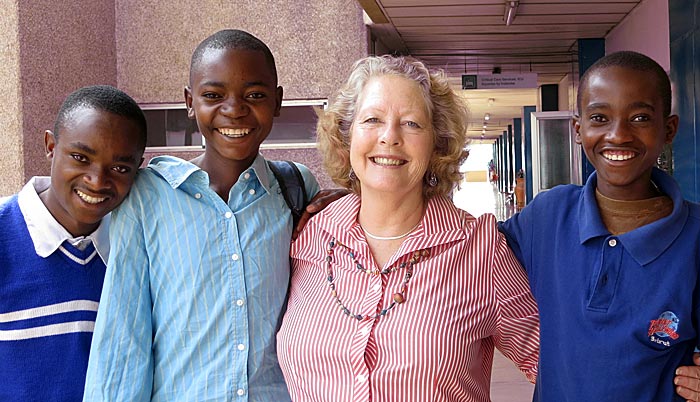
Ceeya Patton-Bolman with three of her patients
"Ceeya started telling me about Team Heart and rheumatic heart disease, the surgeries they do and all the ways they wished they could improve the Rwandan health system," said Bowser. "The wheels started turning, and as a health economist, my first thought was 'that project's not sustainable the way it is.'"
"Professor Bowser started telling me about her work, and I thought 'oh my gosh, this is someone who can make a huge difference for us,'" said Patton-Bolman. Shortly thereafter, Team Heart brought Bowser on board to help them partner with the Rwandan Ministry of Health. Bowser is charged with conducting a health system assessment and finding an affordable way to add cardiovascular care to the country's health system.
With research assistance from Bigirimana, Bowser has begun to assess the healthcare system for expansion, and the news is good. "Rwanda is ready for this," she explained. "You can't say the same for all countries in sub-Saharan Africa, but Rwanda has a base level of technology and has developed a community-based health insurance that covers about 85% of its population. Although right now it only covers basic primary care, this gives us a solid foundation on which to grow."
People living in underdeveloped nations have low life expectancies, and many die of infectious diseases like malaria. As a country's health systems improve, the average lifespan of its citizens grows. However, as life expectancies increase, so does the prevalence of late-in-life illnesses, like cancer and cardiovascular diseases. Treating these "diseases of affluence" typically requires an overhaul of the healthcare system: adding new facilities, expanding payment plans and training a new healthcare workforce.
This is Rwanda's current situation—its primary healthcare system has improved drastically and it now faces a growing demand for cardiovascular care and other non-communicable diseases including diabetes, hypertension and cancers. "One of the higher-level officials we're working with has been enthusiastic about this project because he himself is paying out-of-pocket to fly out of Rwanda for heart disease treatment," said Bowser. "He has the money to fly out and get that care, but a growing number of Rwandans need these services, and most of them can't pay."
An opportunity for equity
“The purpose of this project is not to expand cardiac services only to those who can pay, but to the entire Rwandan population ”
In Rwanda, rheumatic heart disease is a disease of the rural poor. Isolated from urban amenities—including hospitals—and unable to walk modest distances or attend school or work, these young adults suffer both physically as well as psychologically and socially. Since the disease is poorly understood and often undiagnosed, many assume they have HIV, which bears a heavy stigma in the region.
Team Heart continues to provide 16 surgeries per year, and is currently planning to build a state-of-the-art cardiac facility in Kigali where Rwandans will receive in-country treatment. "But we can't just build a hospital and leave it there, like an island," said Bigirimana. "The people we're targeting most likely live in rural regions and are most likely poor—they won't have access to that hospital if there's no way to get there and no way to pay for services. The trick is to integrate it into the system."
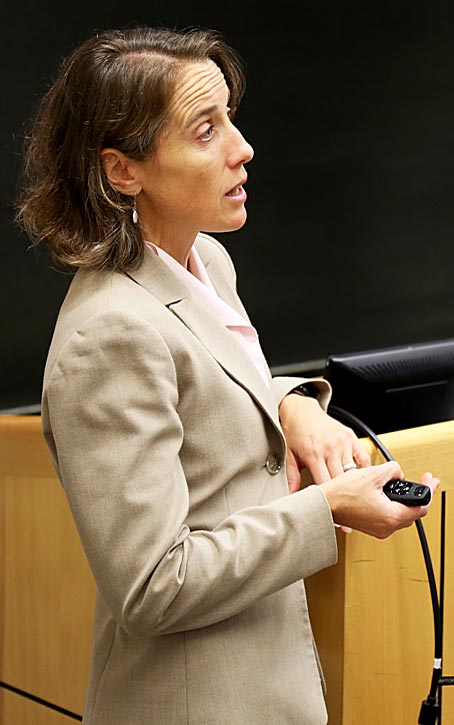
Diana Bowser, Heller MS Program Director
The challenge now facing Bowser and the Rwandan Ministry of Health is to figure out how to pay for expanded cardiovascular services. "That's where it gets innovative," said Bowser. "We need to find a way to finance this plan. Other countries have covered services for cancer care and cardiovascular care in creative ways, so we're surveying case studies to see what's worked."
"The purpose of this project is not to expand cardiac services only to those who can pay, but to the entire Rwandan population," Bowser stressed. Expanding the Rwandan health system to include preventive cardiac care will reduce the rate of rheumatic heart disease among the rural poor, and will allow more children to be treated early—before they need a valve replacement.
Patton-Bolman and Bowser continue to foster a close relationship between Team Heart and the Rwandan Ministry of Health, which is committed to explicitly addressing health equity concerns. "That's huge," said Bigirimana. "We're able to have those tough conversations about funding and strategy, while openly agreeing that we're targeting the poorest of the poor in our country." She added that there is urgency to make these improvements now. The burden is real, and it's growing.



